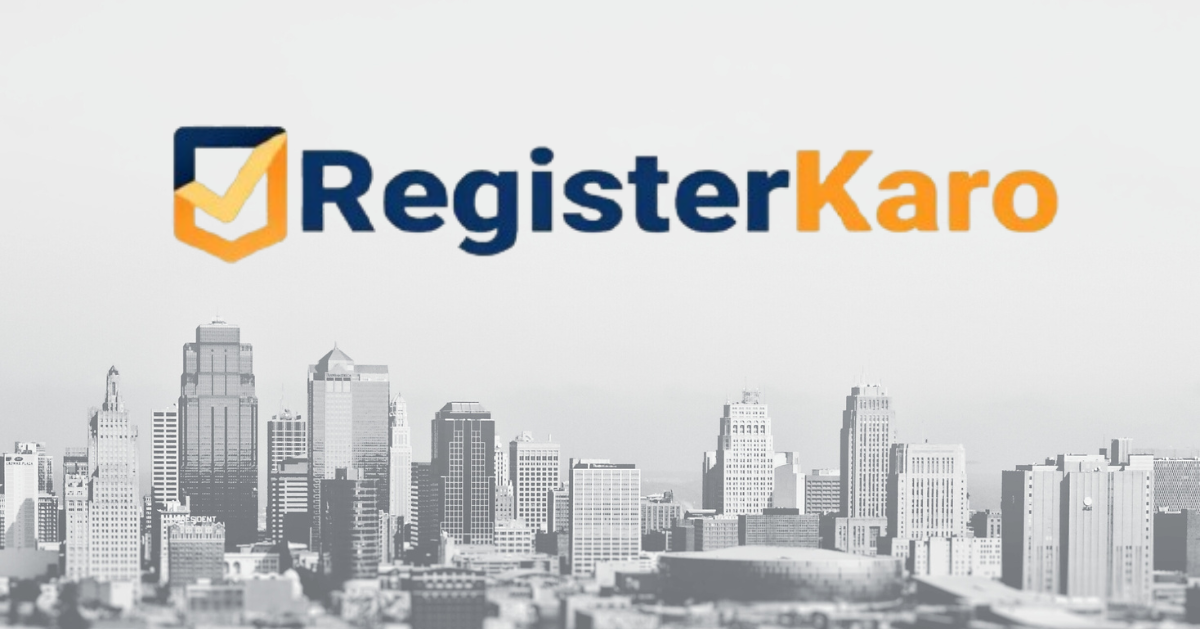
A Complete Guide to Shop License Registration: Process, Documents & MSME Benefits
Introduction
Shop license registration is a crucial process for business owners looking to establish a shop or commercial establishment. It ensures that the business complies with local laws and regulations, offering legitimacy and protection. Under the Shop and Establishment Act, every business must register, whether it’s a retail store, restaurant, or service-based shop.
The shop license process involves filling out forms, submitting the necessary shop license documents required, and adhering to specific state laws. For MSMEs, MSME shop registration is vital to gain various benefits and subsidies provided by the government. In today’s digital age, you can conveniently complete the shop license application online, streamlining the entire registration process. This guide will walk you through the steps, requirements, and benefits of obtaining your shop license, ensuring a smooth and legal start to your business journey.
What is a Shop License?
A shop license is a legal document required for operating any commercial establishment, whether it’s a retail shop, restaurant, or service-based business. It ensures that the business complies with local regulations and the Shop and Establishment Act, which governs the working conditions, hours of operation, and other aspects of businesses in India.
The shop license registration process involves submitting specific shop license documents required, such as proof of ownership, business address, and identity proofs of the owners. For small and medium enterprises (SMEs), MSME shop registration offers additional benefits, including easier access to government schemes and funding.
The shop license process can be completed online through a shop license application, making it easier for business owners to fulfill legal requirements quickly. This license not only protects the business but also ensures a fair and safe working environment for employees.
Who Needs a Shop License?
A shop license registration is required by any business or commercial establishment, whether it’s a retail shop, office, restaurant, or service center. It applies to both large enterprises and smaller businesses, ensuring that they comply with the Shop and Establishment Act, which governs working conditions, wages, and hours of operation for employees. Business owners who need a shop license include those running:
- Retail stores, including e-commerce businesses.
- Restaurants, cafes, and food joints.
- Service-based businesses like salons, gyms, and repair shops.
- Offices or establishments with employees working on-site.
The shop license process ensures that the business complies with local laws, protecting both employers and employees. For MSMEs, MSME shop registration is especially important as it grants access to government subsidies and schemes aimed at supporting small businesses.
To complete the registration, business owners must submit the shop license documents required, such as identity proof, address proof, and business ownership details. Thanks to the option to complete a shop license application online, the process is now more convenient and accessible for all types of businesses.
Step-by-Step Guide to Shop License Registration
Getting a shop license registration is essential for any business to comply with local regulations. The process ensures that your business adheres to the Shop and Establishment Act, safeguarding the rights of both employers and employees. Here’s a simple guide to help you navigate the shop license process:
1. Determine Eligibility
Before applying, ensure your business type requires a shop license. It applies to retail stores, offices, restaurants, and service-based establishments.
2. Gather the Shop License Documents Required
To complete the registration, you’ll need the following documents:
- Proof of ownership or lease agreement for your business premises.
- Identity proof (Aadhar card, PAN, etc.) of the business owner.
- Business details, including the name and type of business.
- Employee details (if applicable).
- Photographs of the owner and premises.
3. Register for MSME (If Applicable)
For small and medium enterprises, MSME shop registration is a good idea. It allows you to avail of government schemes, subsidies, and other benefits that promote business growth.
4. Complete the Shop License Application
You can now apply for the license through the shop license application online process. Visit the official website of your state’s labor department and find the online registration portal.
- Fill out the required details in the application form, including business and owner information.
- Upload the necessary documents and submit the application.
5. Submit the Application
After filling out the form and uploading all documents, submit your application for approval. Some states may require an inspection of the business premises, so be prepared for that.
6. Pay the Registration Fees
Depending on the type of business and location, there will be a nominal registration fee. You can make this payment online through the government portal.
7. Obtain the Shop License
Once your application is processed and approved, you will receive your shop license. It may be issued in a digital format or as a physical document, depending on your state’s regulations.
Documents Required for Shop License Registration
To complete your shop license registration, you will need to provide a set of important documents to ensure that your business complies with the Shop and Establishment Act. These documents vary based on your state and type of business, but generally include the following:
1. Proof of Identity
- Aadhar card or Passport of the business owner.
- PAN card of the owner or authorized person.
- Voter ID or Driving license for additional identity verification.
2. Proof of Business Address
- Lease agreement (if renting the property) or ownership documents for the business premises.
- Utility bill (electricity, water, gas) in the name of the business or owner, not older than 3 months.
- NOC (No Objection Certificate) from the property owner if the premises are rented.
3. Business Details
- Nature of the business (retail, services, etc.) and business name.
- Registration certificate (if your business is already registered with any other government authority like GST, Shops and Establishments Act, etc.).
- Trade license (if applicable in your state).
4. Employee Information (if applicable)
- List of employees working at the establishment, including their job designations.
- Salary details of employees (if the number of employees exceeds a certain threshold).
5. Photographs
- Recent passport-sized photographs of the business owner and premises.
6. MSME Registration (If Applicable)
- If you’re a small or medium business, MSME shop registration documents might include:
- MSME certificate or Udyam registration certificate.
- Details about your company’s infrastructure, employees, and financial details.
7. Shop License Application
- Complete the shop license application online with business and owner details.
- Submit the required declaration as per the Shop and Establishment Act.
8. Additional Documents (Optional, based on local regulations)
- Affidavit of the business owner regarding the legality of the business.
- Health/food safety certificate (for food-related businesses like restaurants or cafes).
- Fire safety clearance (if required for certain types of establishments).
- GST Registration certificate (if your business is GST-registered).
Common Compliance Requirements After Registration
After completing shop license registration, there are several compliance requirements you must adhere to, as mandated by the Shop and Establishment Act and other related regulations. These obligations help ensure that your business remains lawful and operational. Here’s a detailed overview:
1. Display of Shop License
Once you receive your shop license, it must be displayed at a conspicuous location within your establishment. This makes it visible to employees and visitors, ensuring transparency and compliance.
2. Maintaining Records of Employees
You must maintain a register of employees that includes details such as:
- Name of the employees.
- Employment start date.
- Wages and working hours.
- Leave records and other benefits.
This record should be available for inspection by labor authorities if required.
3. Adherence to Working Hours
Businesses must comply with the working hours and weekly holidays specified under the Shop and Establishment Act. Most states regulate the number of hours a shop can remain open and the rest days for employees.
4. Payment of Wages
Regular payment of wages in compliance with the local labor laws is necessary. It should include a statement of overtime (if applicable) and comply with minimum wage standards set by the government.
5. Employee Benefits
Provide statutory benefits to employees, such as:
- Provident Fund (PF) registration (if applicable, based on the number of employees).
- Gratuity (for employees who have worked for 5 years or more).
- Leave benefits (sick leave, casual leave, and annual leave).
These benefits must be in line with both the Shop and Establishment Act and labor laws.
6. Health and Safety Compliance
For businesses that deal with food or chemicals, health and safety regulations must be strictly followed. This includes obtaining licenses like the FSSAI license for food establishments or fire safety clearance if required for your premises.
7. Renewal of Shop License
Shop licenses are usually valid for a specific period, such as 1 to 5 years, depending on local regulations. Ensure timely renewal of your license before it expires.
8. Annual Returns/Reports
Some states require businesses to file annual returns or reports with the local labor department, detailing the number of employees, wages paid, and other business activities.
9. MSME Registration Compliance (For MSMEs)
If you’ve registered under the MSME shop registration, ensure that you update your registration details regularly and comply with any applicable schemes and subsidies. Additionally, maintain annual turnover and other required records for MSME eligibility.
10. Tax Compliance
Ensure that your business complies with taxation laws, including GST registration and filing of returns. Timely filing of GST returns and income tax returns is crucial to avoid penalties.
11. Compliance with Local Laws
Depending on the location of your business, additional local or municipal regulations may apply. Stay updated on any changes in zoning laws, environmental laws, or other region-specific rules.
12. Shop License Updates
If there are any changes to the business (e.g., ownership, address, type of business), you must update your shop license registration with the new information through the appropriate channels.
Conclusion
Ensuring shop license registration is a crucial step for businesses operating in India, as it provides legal recognition and ensures compliance with the Shop and Establishment Act. Whether you run a small retail store or a large commercial establishment, obtaining a shop license is mandatory to avoid legal complications. By following the shop license process and submitting the necessary shop license documents, businesses can seamlessly complete their registration. With the ease of shop license application online, entrepreneurs can now register their businesses from the comfort of their homes, making the process more efficient and hassle-free.
For small businesses and startups, MSME shop registration provides added benefits such as easier access to financial aid, tax exemptions, and government incentives, further supporting business growth. However, obtaining a shop license is just the beginning—businesses must also comply with post-registration requirements under the Shop and Establishment Act, including maintaining employee records, adhering to labor laws, and renewing their licenses periodically. Failure to comply can result in penalties, making it essential to stay updated with legal obligations.
Ready to get started? Let RegisterKaro simplify the shop license registration process for you! Whether you need assistance with the shop license process, guidance on MSME shop registration, or help with shop license application online, our experts are here to support you. Reach out to trusted platforms like RegisterKaro and make your compliance journey smooth, allowing you to focus on what truly matters—growing your business.




